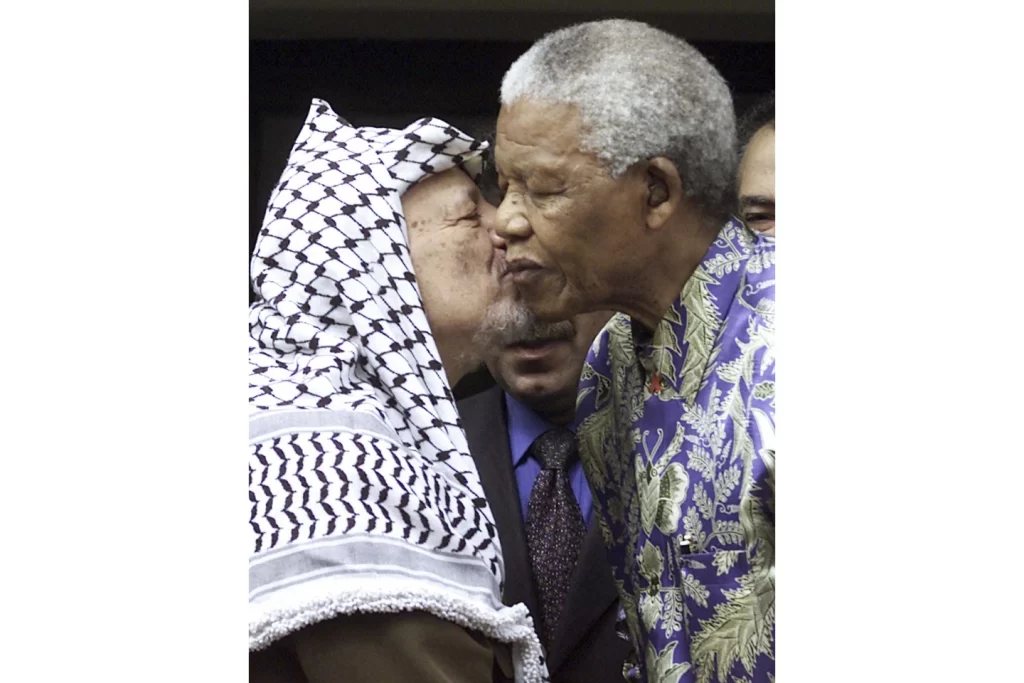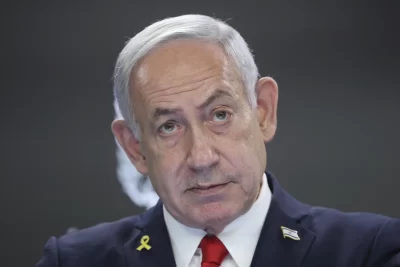
CAPE TOWN, South Africa — Barely two weeks after he was released from prison in 1990, Nelson Mandela flew to Zambia to meet with African leaders who had supported his fight against South Africa’s apartheid system of forced racial segregation.
One figure stood out among the men in dark suits eagerly waiting to greet Mandela on the airport tarmac: Palestinian leader Yasser Arafat, wearing his black and white checkered keffiyeh headdress, had traveled to see the newly freed Mandela.
He grabbed Mandela in a bear hug and kissed him on each cheek. Mandela smiled broadly. It was confirmation of the solidarity between two men who considered their peoples’ struggles for freedom to be the same.
South Africa is not a diplomatic heavyweight and is geographically far from the conflict. But its ruling African National Congress, which Mandela led from an anti-apartheid liberation movement to a political party in government, has retained its strong pro-Palestinian stance even after Mandela died in 2013.
Nelson Mandela regularly raised the plight of the Palestinians. Three years after apartheid and white minority rule was dismantled in South Africa and Mandela was elected president in historic all-race elections in 1994, he thanked the international community for its help. He added: “But we know too well that our freedom is incomplete without the freedom of the Palestinians.”
The ANC has consistently criticized Israel as an “apartheid state,” even before the current war. International rights groups have also accused Israel of the crime of apartheid against Palestinians and that “resonates strongly with South Africa,” said Thamsanqa Malusi, a South African human rights lawyer.
Israel adamantly rejects that characterization, saying its Arab minority enjoys full civil rights. It views Gaza, from which it withdrew soldiers and settlers in 2005, as a hostile entity ruled by the Islamic militant group Hamas, and it considers the West Bank to be disputed territory subject to peace negotiations — which collapsed more than a decade ago.




